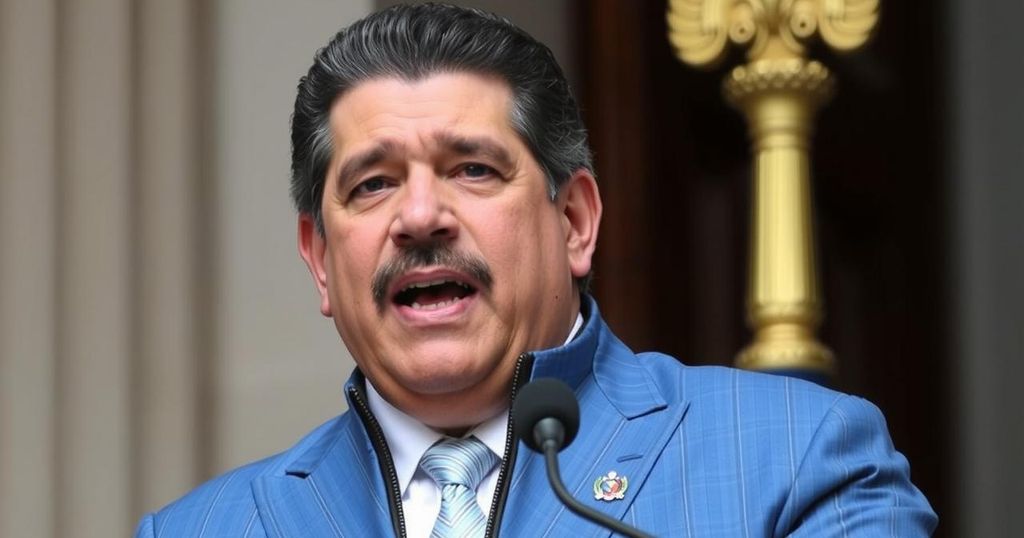Maduro’s Third Term Sworn In Amid Controversy and Protests in Venezuela

On January 20, 2024, Nicolás Maduro was inaugurated for a third term as Venezuela’s president, following a contested election marred by allegations of fraud. Despite opposition claims that Edmundo González won significantly more votes, Maduro accused critics of attempting to disrupt his inauguration. Internationally, there has been widespread condemnation, resulting in sanctions and protests against the Maduro regime as questions about electoral integrity mount. The political climate remains tense, with opposition leaders expressing significant dissent against the regime.
On January 20, 2024, Nicolás Maduro was sworn in for a third six-year term as President of Venezuela, amid rampant protests and stark international condemnation regarding suspected electoral fraud. His inauguration was safeguarded by a strong presence of police and military forces, while pro-Maduro supporters gathered outside, showcasing the deep divisions within the nation. Amidst the pomp, Maduro accused the opposition of attempting to undermine his presidency, labeling the day as a significant Venezuelan victory despite credible evidence suggesting an opposition candidate, Edmundo González, won the election.
The opposition claimed to possess indisputable evidence by collecting voting data from over 80% of the electronic voting machines used in the July 28 election. This data, corroborated by election monitors from the U.S.-based Carter Center, indicated that González received far more votes than Maduro, challenging the official results declared by Maduro’s government. The legitimacy of the election results has faced significant scrutiny, leading to international sanctions against Venezuelan officials and widespread protests domestically.
Widespread allegations of electoral malpractice have further escalated tensions. As Maduro asserted his claims of victory, the absence of detailed vote counts from electoral authorities raised suspicions regarding the integrity of the electoral process. The subsequent international outrage prompted Maduro’s government to call for an audit, which yielded little transparency. The situation culminated in a series of protests, resulting in hundreds of arrests and allegations of government violence against demonstrators, further intensifying the humanitarian crisis in Venezuela.
The political landscape in Venezuela remains deeply polarized, particularly following allegations of electoral fraud during the recent elections. Nicolás Maduro, who has faced significant opposition, was re-elected despite credible claims that his opponent had received more votes. The political climate in Venezuela has prompted widespread protests and international scrutiny, especially from neighboring countries and groups advocating for democracy. As international sanctions target Maduro’s administration, public dissent continues to rise, illustrating the urgent need for a resolution to the ongoing crisis in the region.
In conclusion, Nicolás Maduro’s recent swearing-in as president has been marred by allegations of electoral fraud and significant opposition protests. The accusations of electoral misconduct and the repression of dissent have sparked international sanctions, highlighting the challenges facing the Venezuelan government. The opposition’s claims of victory amplify the political crisis in Venezuela, setting a precarious stage for the future of both governance and democracy in the country.
Original Source: gvwire.com







